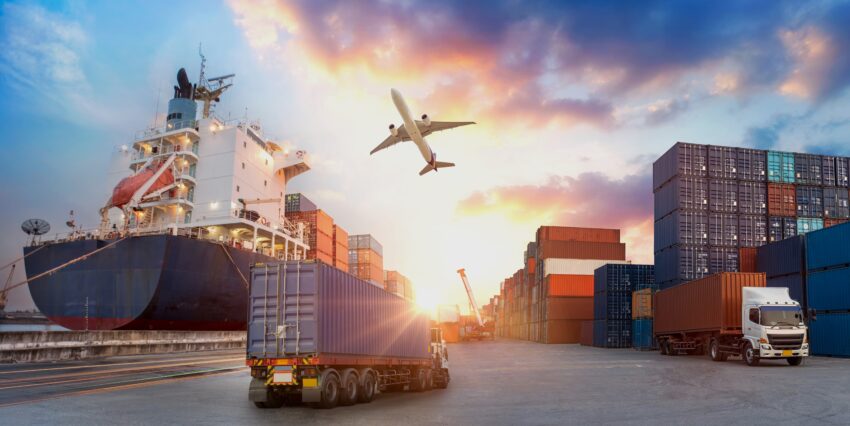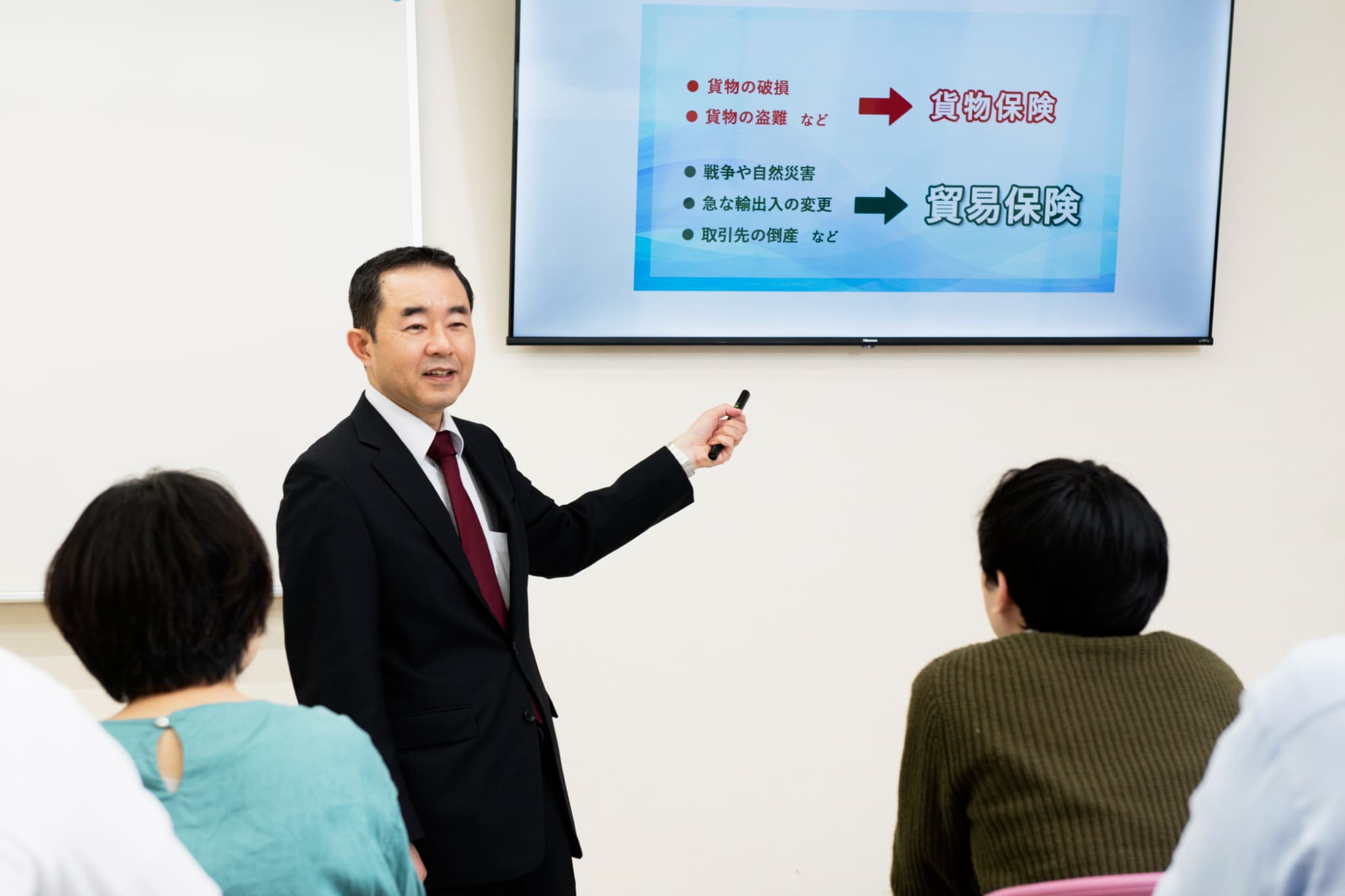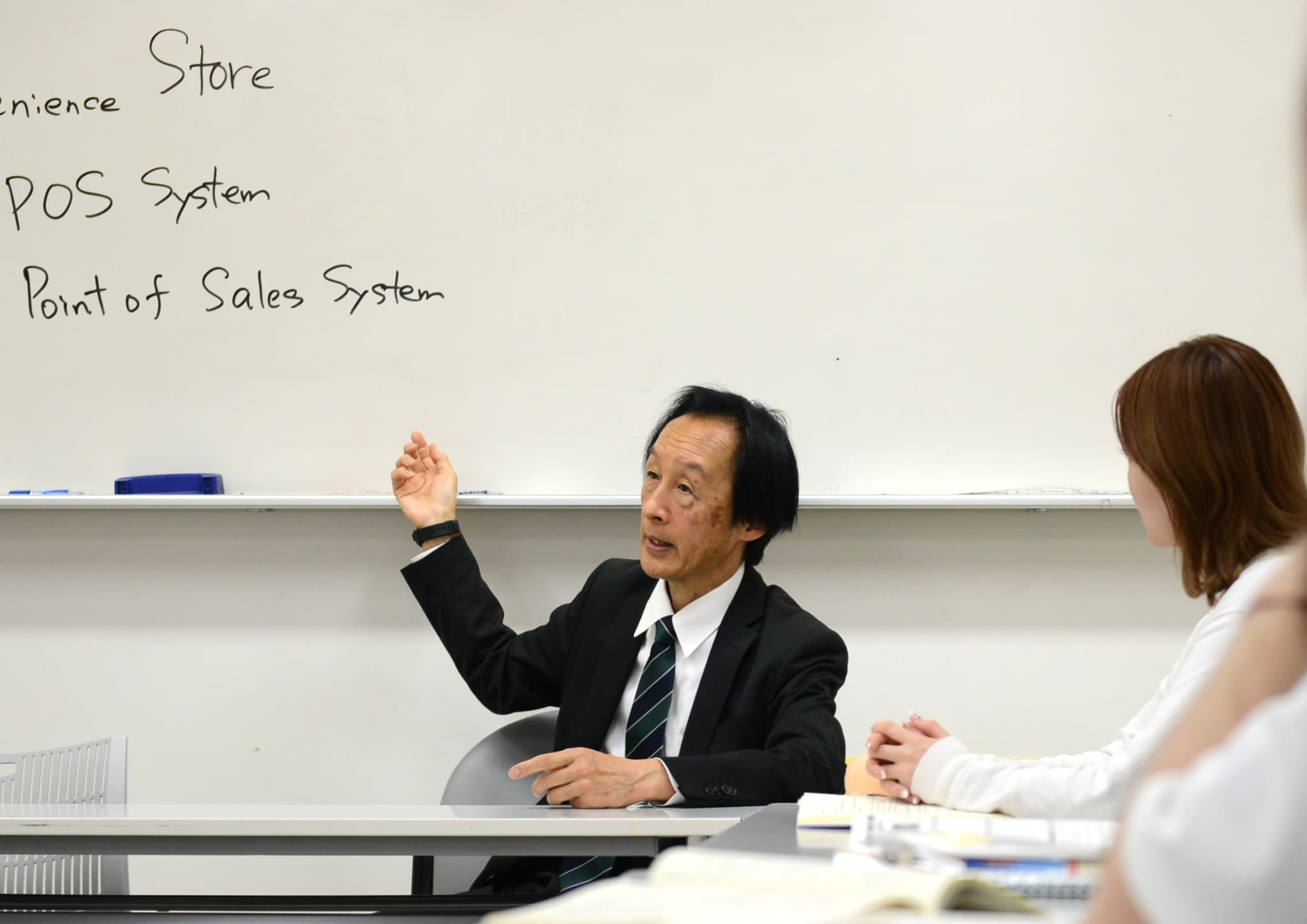Digital Transformation
in Logistics and Trade

You will learn about the processes and operations involved in how products are made and delivered to your door. This includes gaining specialized knowledge of distribution, logistics, and trade, as well as learning about global supply chains that incorporate IT technologies. Additionally, you will acquire the skills necessary for optimization. Furthermore, you will study system technologies and digital transformation (DX) initiatives, enabling you to design, build, and evaluate systems. Guidance will be provided by professors with executive and managerial experience in manufacturing and logistics companies.
Logistics, the foundation of economic activity, and Japan's trade, which is playing an increasingly important role within Asia
Focusing on the present, shaping the future!
You will study both theory and practice.

In the theoretical aspect, you will gain an understanding of the structure and system of global supply chains, comprehend trends and current challenges in the industry, and develop management skills to propose improvements. In practical skills, you will learn the operational knowledge related to DX (Digital Transformation), distribution, logistics, and trade. As foundational knowledge, you will study laws, international agreements, and customs to become a well-rounded business professional. The core specialized subjects include 20 courses. In the fields of distribution, logistics, and trade, subjects include Distribution Theory, Global SCM, Asian Business, Global Logistics, International Transportation Theory, Advanced Logistics Strategies, Trade Practices, Customs Procedures, and International Trade Agreements. In the IT and DX fields, subjects include Digital Transformation Theory and Data Science.
Message from the Faculty

Professor M. Ishikawa
The world is filled with a wide variety of products, and new ones are constantly being created everywhere. Selling attractive products from Japan that people abroad desire (export) and purchasing various products from other countries (import) make our lives more enjoyable and enriched. But it goes beyond that. The exchange of goods leads to the exchange of people, fostering a deeper understanding of different cultures and contributing to the realization of a peaceful world without war. At our university, students learn the methods of buying and selling goods with foreign countries while deepening their understanding of international relations.
You will learn about the mechanisms of distribution in a globalized and increasingly intelligent world.

Professor S. Uchida
Distribution is the mechanism that connects production with consumption. In other words, it is the field of study that examines how products created by producers (manufacturers) reach us, the consumers. Thanks to distribution, our daily lives run smoothly. For instance, we purchase goods from convenience stores and supermarkets almost every day, but behind that is the intricate system of distribution. In recent years, globalization and advancements in information technology (IT) have significantly transformed the distribution industry. In this course, you will also study the future developments of distribution theory, exploring various case studies along the way.
